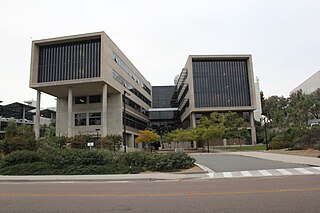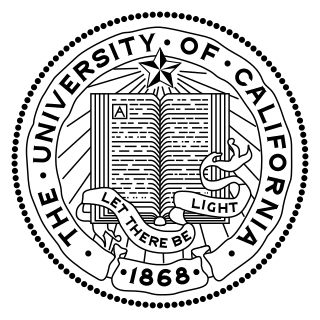
The University of California (UC) is a public land-grant research university system in the U.S. state of California. Headquartered in Oakland, the system is composed of its ten campuses at Berkeley, Davis, Irvine, Los Angeles, Merced, Riverside, San Diego, San Francisco, Santa Barbara, and Santa Cruz, along with numerous research centers and academic abroad centers. The system is the state's land-grant university. Major publications generally rank most UC campuses as being among the best universities in the world. In 1900, UC was one of the founders of the Association of American Universities and since the 1970s seven of its campuses, in addition to Berkeley, have been admitted to the association. Berkeley, Davis, Santa Cruz, Irvine, Los Angeles, Santa Barbara, and San Diego are considered Public Ivies, making California the state with the most universities in the nation to hold the title. UC campuses have large numbers of distinguished faculty in almost every academic discipline, with UC faculty and researchers having won 71 Nobel Prizes as of 2021.

The University of California, Berkeley, is a public land-grant research university in Berkeley, California. It was established in 1868 as the University of California and is the state's first land-grant university and the founding campus of the University of California system. Berkeley has been regarded to be among the top universities worldwide.
Lawrence Livermore National Laboratory (LLNL) is a federally funded research and development center in Livermore, California, United States. Originally established in 1952, the laboratory now is sponsored by the United States Department of Energy and administered by Lawrence Livermore National Security, LLC.
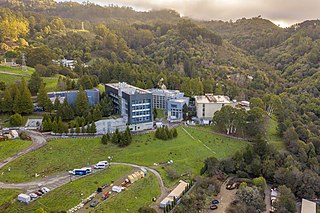
Lawrence Berkeley National Laboratory (LBNL) is a federally funded research and development center in the hills of Berkeley, California, United States. Established in 1931 by the University of California (UC), the laboratory is sponsored by the United States Department of Energy and administered by the UC system. Ernest Lawrence, who won the Nobel prize for inventing the cyclotron, founded the Lab and served as its Director until his death in 1958. Located in the Berkeley Hills, the lab overlooks the campus of the University of California, Berkeley.

The University of California, Berkeley College of Engineering, branded as Berkeley Engineering, is the engineering school of the University of California, Berkeley, a public research university in Berkeley, California.

Armand Paul Alivisatos is an American chemist and academic administrator who has served as the 14th president of the University of Chicago since September 2021. He is a pioneer in nanomaterials development and an authority on the fabrication of nanocrystals and their use in biomedical and renewable energy applications. He was ranked fifth among the world's top 100 chemists for the period 2000–2010 in the list released by Thomson Reuters.
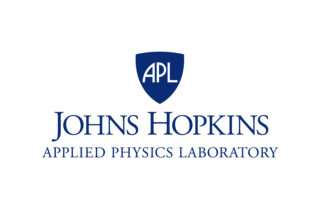
The Johns Hopkins University Applied Physics Laboratory is a not-for-profit university-affiliated research center (UARC) in Howard County, Maryland. It is affiliated with Johns Hopkins University and employs 8,500 people as of 2023. APL is the nation's largest UARC.

Steven Chu is an American physicist and former government official. He is a Nobel laureate and was the 12th U.S. secretary of energy. He is currently the William R. Kenan Jr. Professor of Physics and Professor of Molecular and Cellular Physiology at Stanford University. He is known for his research at the University of California, Berkeley, and his research at Bell Laboratories and Stanford University regarding the cooling and trapping of atoms with laser light, for which he shared the 1997 Nobel Prize in Physics with Claude Cohen-Tannoudji and William Daniel Phillips.
Diogenes James Angelakos was an American electrical engineer and professor emeritus of electronic engineering at the University of California, Berkeley, who served as the director of the Electronics Research Laboratory for 20 years. He is credited with building up the research group into one of the university's biggest research labs. He is considered a pioneer in the fields of microwaves, antennas and electromagnetic waves.

The California Institute for Quantitative Biosciences (QB3) is a nonprofit research and technology commercialization institute affiliated with three University of California campuses in the San Francisco Bay Area: Berkeley, San Francisco, and Santa Cruz. QB3's domain is the quantitative biosciences: areas of biology in which advances are chiefly made by scientists applying techniques from physics, chemistry, engineering, and computer science.
David Ethan Culler is a computer scientist and former chair of the Department of Electrical Engineering and Computer Sciences at the University of California, Berkeley. He is a principal investigator in the Software Defined Buildings (SDB) project at the EECS Department at Berkeley and the faculty director of the i4Energy Center. His research addresses networks of small, embedded wireless devices, planetary-scale internet services, parallel computer architecture, parallel programming languages, and high performance communication. This includes TinyOS, Berkeley Motes, PlanetLab, Networks of Workstations (NOW), Internet services, Active Message, Split-C, and the Threaded Abstract Machine (TAM).

James Weldon Demmel Jr. is an American mathematician and computer scientist, the Dr. Richard Carl Dehmel Distinguished Professor of Mathematics and Computer Science at the University of California, Berkeley.
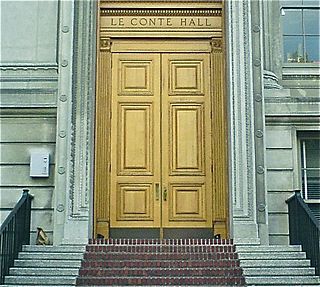
LeConte Hall is the former name of a building on the campus of the University of California, Berkeley, which is home to the physics department. LeConte Hall was one of the largest physics buildings in the world at the time it was opened in 1924, and was also the site of the first atom collider, built by Ernest O. Lawrence in 1931.

Katherine "Kathy" Anne Yelick, an American computer scientist, is the vice chancellor for research and the Robert S. Pepper Professor of Electrical Engineering and Computer Sciences at the University of California, Berkeley. She is also a faculty scientist at Lawrence Berkeley National Laboratory, where she was Associate Laboratory Director for Computing Sciences from 2010-2019.

Robert Eric Betzig is an American physicist who works as a professor of physics and professor of molecular and cell biology at the University of California, Berkeley. He is also a senior fellow at the Janelia Farm Research Campus in Ashburn, Virginia.

Michael Stewart Witherell is an American particle physicist and laboratory director. He has been the director of the Lawrence Berkeley National Laboratory since 2016. Witherell, a particle physicist, previously served as Director of Fermilab. He previously served as professor and vice chancellor for research at the University of California, Santa Barbara.
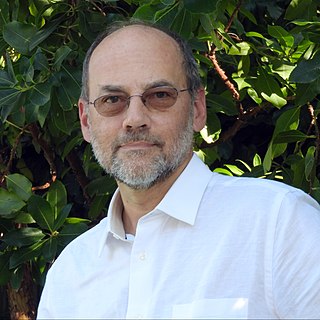
Edward Ashford Lee is an American computer scientist, electrical engineer, and author. He is Professor of the Graduate School and Robert S. Pepper Distinguished Professor Emeritus in the Electrical Engineering and Computer Science (EECS) Department at UC Berkeley. Lee works in the areas of cyber-physical systems, embedded systems, and the semantics of programming languages. He is particularly known for his advocacy of deterministic models for the engineering of cyber-physical systems.
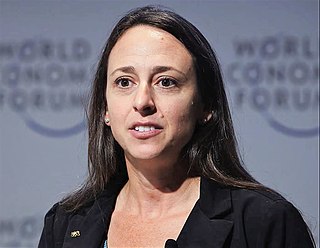
Amy Elizabeth Herr is the John D. and Catherine T. MacArthur Professor at the University of California, Berkeley, where she is attached to the Department of Bioengineering. At Berkeley she was also the founding executive director of the Bakar Bioenginuity Hub. Herr is a Chan Zuckerberg BioHub Investigator and the Chief Technology Officer of the Chan Zuckerberg Biohub Network, a fellow of both the National Academy of Inventors and the American Institute of Medical and Biological Engineering, as well as a co-founder of Zephyrus Biosciences, a biotechnology company that was acquired by Bio-Techne.
Horst D. Simon is a computer scientist known for his contributions to high-performance computing (HPC) and computational science.




